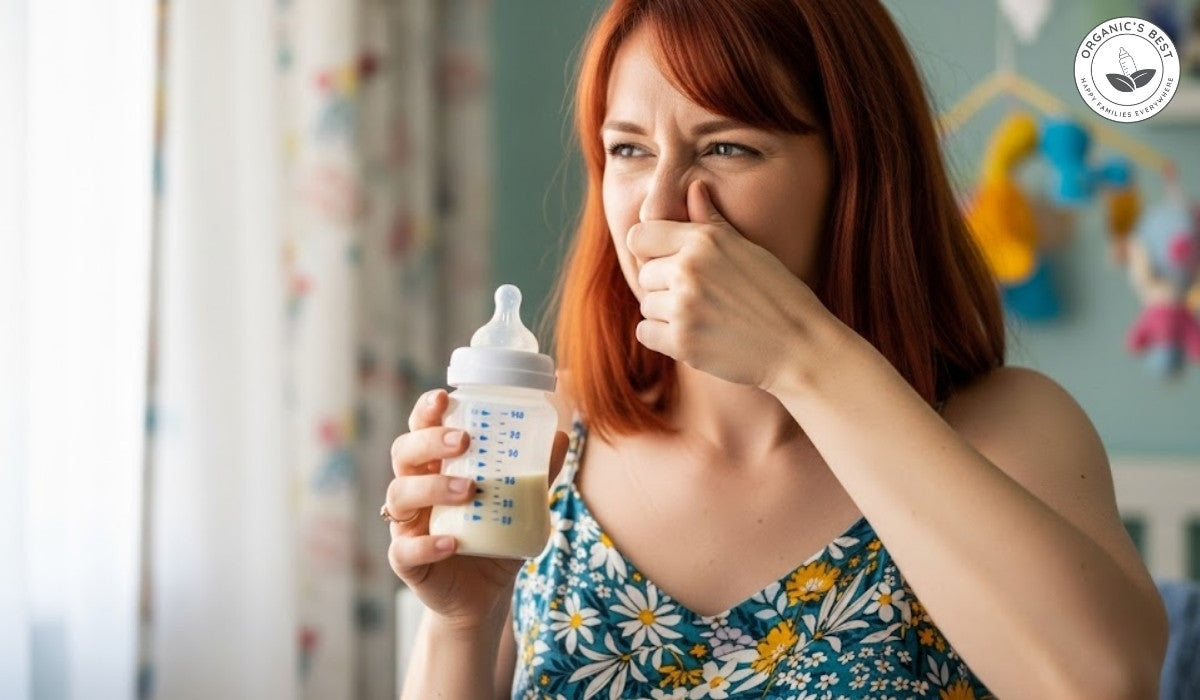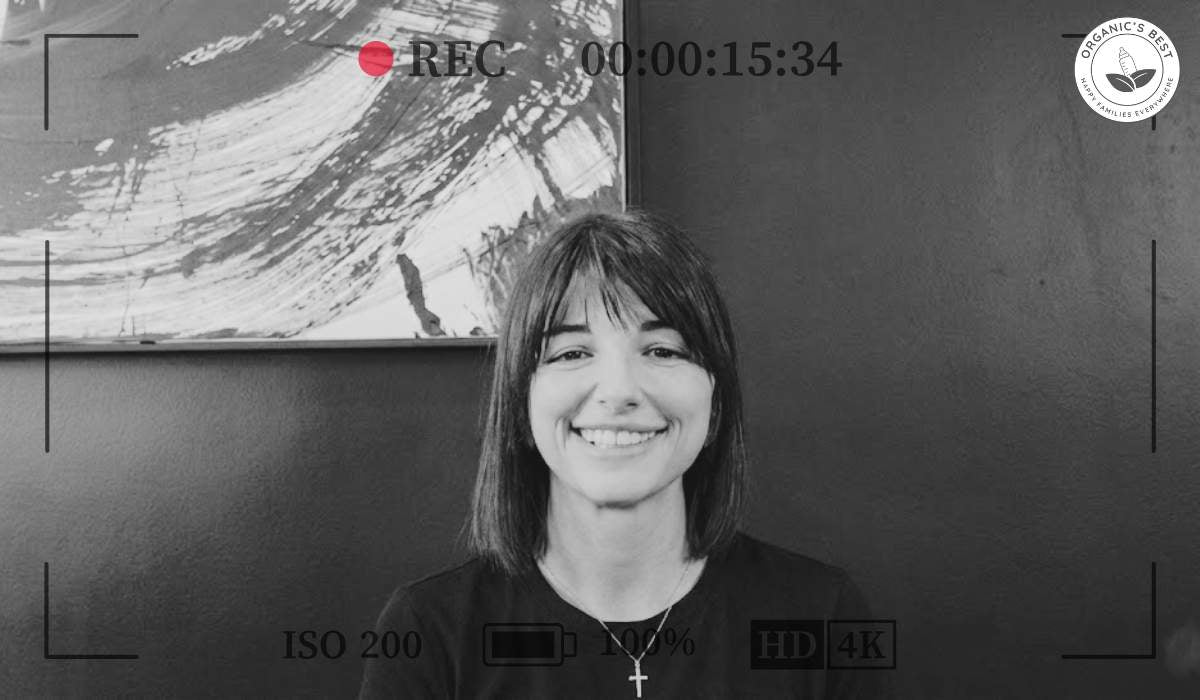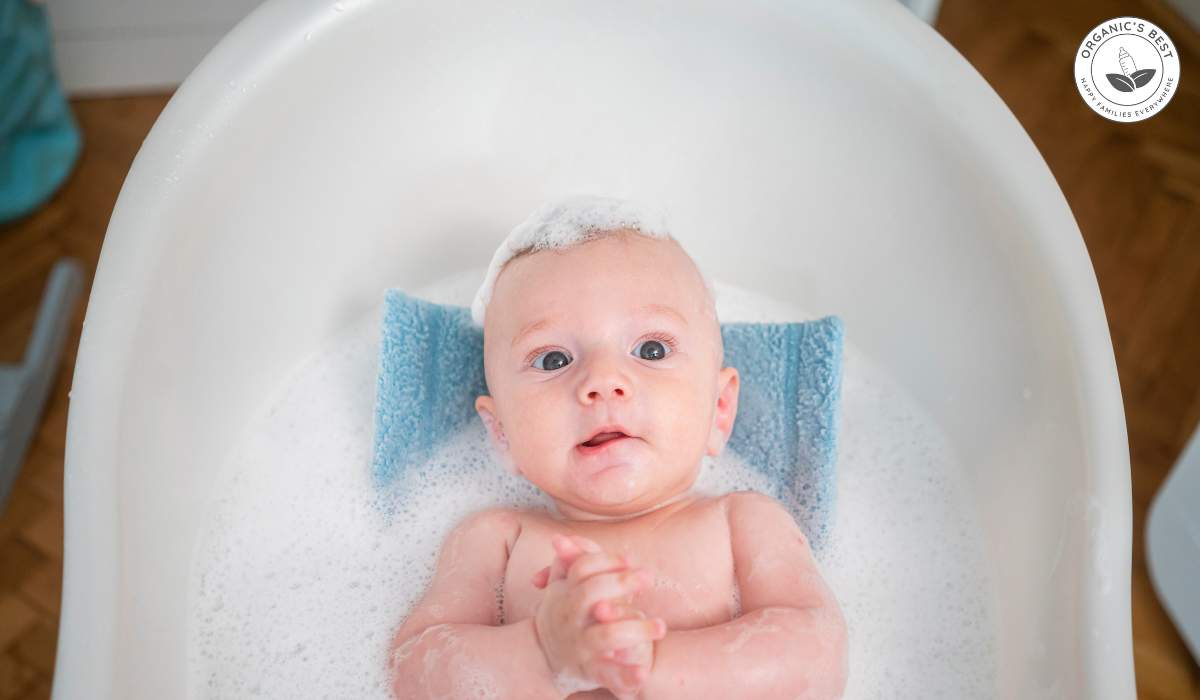Click to Get 2 FREE Boxes/Cans
Only New Customers! Click HERE to Get 2 Extra Boxes/Cans for Free With Your First Order.
BABY FORMULA
Offering new parents top-quality European infant formula from renowned brands like HiPP, Holle, Kendamil, and more. If you’re uncertain about which product to choose, our Formula Finder can help you make the best decision for your baby.
Baby Food
Offering new parents a premium selection of European baby foods, including jars, pouches, cereals, and snacks from esteemed brands like HiPP and Holle.
How to Tell if Powdered Formula is Bad
by Agustina Fernandez December 05, 2023 8 min read

In the hustle and bustle of parenthood, it's easy to overlook the finer details, such as the shelf life and condition of the powdered baby formula that many little ones rely on.
If you're new to preparing bottles for your baby, you may be asking yourself...does baby formula expire? How can you tell if the formula you're using is still good? And are there telltale signs of spoilage that you should be aware of?
By the time you reach the end of this article, you will know how to tell if powdered formula is bad or not so you can prepare your baby's formula with confidence!
Table of contents
- The Importance of Fresh Infant Formula
- How Long Does Baby Formula Last?
- Visual Inspection: Signs of Spoilage
- The Sniff Test: Detecting if Formula is Bad
- Checking the Expiry Date: A Must When Formula Feeding
- Safe Storage Practices to Prolong Powdered Formula Freshness
- What to Do if You're Unsure if Powdered Formula Has Gone Off
The Importance of Fresh Infant Formula
Baby formula is meticulously crafted to replicate the nutritional composition of breast milk as closely as possible and must follow strict food safety standards. Achieving this delicate balance requires a precise combination of vitamins, minerals, proteins, and other essential nutrients.
Over time, however, exposure to environmental factors like heat, humidity, and air can compromise this balance, potentially leading to nutrient degradation of the formula's composition and contamination.
Moreover, the early months and years of an infant's life are marked by rapid growth and development. Proper nutrition during this period is of paramount importance, as it plays a pivotal role in cognitive, physical, and emotional development.
A fresh and high-quality formula can ensure that your baby receives the necessary nutrients to support these critical developmental milestones if breastfeeding is not an option, setting the stage for a healthy and thriving future.
Finally, digestive health is a significant concern for infants, and formula that has gone bad may lead to digestive issues such as upset stomach, diarrhea, or constipation.
Ensuring the freshness of the formula helps maintain optimal digestibility, which is vital for your baby's comfort and overall well-being.

Risks Associated with Spoiled or Expired Powdered Baby Formula
Spoiled or expired baby formula poses several risks to your child's health and well-being, including:
-
Nutrient Loss: Over time, the essential nutrients in baby formula can deteriorate, resulting in reduced nutritional value. This can leave your baby undernourished, potentially leading to problems with their health and development.
-
Digestive Problems: Expired formula can make a baby sick as it may contain harmful bacteria that can cause digestive problems, including diarrhea or vomiting.
-
Weakening Immunity: Infant formula that has lost its freshness may not provide the necessary immune system support, leaving your baby more susceptible to foodborne illnesses and infections.
How Long Does Baby Formula Last?
The shelf life of powder formula is a critical factor to consider when ensuring the freshness and safety of your infant's nutrition. So, how long does baby formula last?
Once a can of powdered formula is opened, it's essential to adhere to specific guidelines to maintain its quality and safety.
Here's a list of the shelf life durations for some of our favourite baby formula brands once the can/box of formula has been opened:

-
Nannycare: 4 weeks
-
Jovie Goat: 4 weeks
-
Jovie Cow: 3 weeks
-
HiPP: 3 weeks
-
Holle: 2 weeks
-
Lebenswert Bio: 2 weeks
-
Löwenzahn Organics: 2 weeks
Factors Affecting Formula Shelf Life, Including Storage Conditions
Several factors can influence the shelf life of unprepared powdered formula, with proper storage conditions being a primary concern.
Unopened cans of powder, liquid concentrate formulas, and ready-to-feed formula can typically be stored at room temperature until the use by dates, provided they are shielded from extreme hot or cold temperatures.
However, when a can of powdered formula is opened, specific guidelines must be followed:
-
Use the formula within the manufacturers' guidelines for opened formula, and be sure to date the container to track its freshness. It's worth noting that different brands have different shelf lives, as do liquid formulas and powdered formulas.
-
Store the opened can at room temperature, protecting it from heat and moisture.
-
Prepared formula mixtures and opened containers of ready-to-feed or liquid concentrate should be refrigerated at a temperature between 35° and 40° degrees Fahrenheit.
-
Prepared mixed formula should be consumed within 24 hours, while opened containers of ready-to-feed formula, unmixed liquid concentrate, and prepared liquid concentrate can be refrigerated for up to 48 hours.
-
Freezing mixed baby formula is not recommended, as it can introduce moisture and compromise its quality and nutritional value.
Visual Inspection: Signs of Spoilage 👀
Visual inspection is a crucial step in identifying signs of spoilage and figuring out how to tell if powdered formula is bad.
Here are some visual cues that may indicate that the formula is no longer suitable to use:

1) Color Changes 🎨: Pay close attention to the color of the formula. Fresh powdered formula typically has a consistent and uniform color. If you notice any significant changes in color, such as darkening or the appearance of unusual spots, this may indicate spoilage.
2) Texture Alterations 🍼: Fresh powdered formula should have a fine, smooth texture. If you observe clumps, lumps, or a gritty texture in the formula, it's a potential sign of spoilage.
3) Mold or Mildew 🦠: Inspect the container's inner lid and the formula's surface for the presence of mold or mildew. These can develop if the formula has been exposed to moisture or if the container was improperly sealed.
4) Insects or Pests 🪳: Check for the presence of insects or pests in the formula container. These unwanted visitors can contaminate the formula and render it unsafe for consumption.
Visual inspection is a practical and reliable way to identify potential issues with powdered formula. Trust your senses and look for any deviations from the expected appearance and texture.
If you encounter any of these visual cues, it's advisable to err on the side of caution and replace the formula to ensure the safety and health of your baby.
The Sniff Test: Detecting if Formula is Bad 👃
When it comes to checking the freshness of powdered formula, your sense of smell can be a valuable tool.
Fresh powdered formula often has a distinct but relatively neutral aroma. However, it's important to note that the smell of formula can vary depending on whether it's vegan or powdered milk-based. Vegan and lactose-free formulas may have a different scent due to their unique ingredients.
Identifying Off or Unusual Smells as Indicators of Spoiled Formula
Here's what you need to know about identifying off or unusual smells as indicators of spoiled formula:

Foul Odors 🤢
Fresh powdered formula should not emit a foul or offensive odor. If you detect any foul smell, it's a strong indication that the formula may have spoiled.
Sour or Rancid Smells 🍋
Formula that has gone bad can develop sour or rancid odors. These smells are a clear sign that the formula is no longer safe for your baby to consume.
Chemical or Medicinal Odors 🧪
If the formula has a chemical or medicinal odor that is not typical for the product, it may have undergone chemical changes or microbial growth.
Moldy or Musty Smells 🦠
In some cases, the spoiled formula can emit moldy or musty odors. Inspect the container and the formula's surface for any visible signs of mold or mildew as well.
Checking the Expiry Date: A Must When Formula Feeding
The expiration date on any food product, including powdered baby formula, is not merely a suggestion but a crucial piece of information that should never be overlooked. It signifies the date until which the product is guaranteed to maintain its quality and safety when stored properly in a cool, dark place.
When it comes to baby formula, understanding the significance of these expiration dates is paramount. The expiration is determined through rigorous testing by the manufacturer and is based on factors such as the formula's ingredients, packaging, and storage conditions. It represents the point at which the formula may start to deteriorate, potentially leading to a decline in its nutritional value and safety.
By not using expired formula, you can ensure that the formula provides your baby with the intended nutrients and avoids any potential risks.
Safe Storage Practices to Prolong Powdered Formula Freshness
Here are some essential tips on how to store formula containers to preserve their freshness:
-
Keep it Cool and Dry: Store unopened cans of powdered formula in a cool, dry place at room temperature. Extreme temperatures, both hot and cold, can accelerate the deterioration of the formula.
-
Seal Containers Tightly: Ensure that the formula is sealed in an airtight container and closed properly after each use. This prevents moisture and contaminants from entering and compromising the formula's quality.
-
Avoid Exposure to Light: Protect the formula from direct sunlight and prolonged exposure to artificial light, as UV radiation can degrade the nutrients.
-
Moisture Control: Moisture is an enemy of powdered formula. Keep the formula container away from damp areas, and never transfer the powder into a damp or wet container.
-
Date the Container: When you first open a container of formula, write the date on the lid to help you keep track of how long it has been opened. This ensures that you don't miss the use-by date.
-
Clean Scoops and Utensils: The Centers for Disease Control advise that the scoop and any utensils used to prepare the formula are clean and dry before scooping the powder.
What to Do if You're Unsure if Powdered Formula Has Gone Off
If you ever find yourself uncertain about the freshness or safety of your baby's powdered formula, here are some guidelines to keep feeding your baby safely:
1) Begin by conducting a visual and olfactory inspection of the formula, as detailed earlier in this guide. Trust your senses, as they often provide valuable information.
2) Always verify the expiration date on the formula packaging, and if it has passed this date, it's best to dispose of it immediately.
If concerns persist, consider reaching out to the manufacturer's customer support for guidance or consult your pediatrician for expert advice tailored to your baby's unique needs. In times of uncertainty regarding your baby's formula, remember the age-old wisdom: it's better to be safe than sorry!
Conclusion: Powdered Formula Freshness
Now, you've gone from wondering how to tell if powdered formula is bad, to being armed with crucial insights on recognizing signs of spoiled powdered formula. By recognizing the importance of the expiration date and practicing safe storage methods – you are well-prepared to safeguard your baby's health and ensure they receive the best nutrition!
Disclaimer:
Please be aware that this information is based on general trends in babies, and it is not medical advice. Your doctor should be your first source of information and advice when considering any changes to your child’s formula and when choosing your child’s formula. Always consult your pediatrician before making any decisions about your child’s diet or if you notice any changes in your child. Breastfeeding is the best nutrition for your baby because breast milk provides your child with all the essential nutrients they need for growth and development. Please consult your pediatrician if your child requires supplemental feeding. |
Agustina Fernandez
Dr. Agustina Fernandez earned her medical degree from the prestigious Universidad Nacional de Córdoba, Argentina. With a deep-rooted passion for pediatrics, Dr. Fernandez is currently on the path to specializing in children's healthcare. Recently, she has delved into the vital field of infant nutrition. Her research interests include breastfeeding, infant formula, and baby food in little ones’ formative years. Dr. Fernandez's commitment to this area of study underscores her dedication to ensuring the health and well-being of children from their earliest days.
Leave a comment
Comments will be approved before showing up.
Also in Organic Infant Nutrition and Health Blog

Spilled Milk: Feeding Unfiltered with Hayley
by Agustina Fernandez February 04, 2026 4 min read
Read More
Baby Bath Guide: How to Bathe a Newborn
by Agustina Fernandez February 03, 2026 8 min read
Read More
Does Your Kid Need More Vitamin D in Winter?
by Agustina Fernandez January 28, 2026 7 min read
Read More
Reviewed by Dr. Po-Chang Hsu, MD, MS
-

Dr. Po-Chang Hsu: Medical Reviewer of Organic's Best Blog
Dr. Hsu received his medical degree from Tufts University in Boston, Massachusetts, and holds a Master’s of Science degree from both Harvard University and Tufts University.
